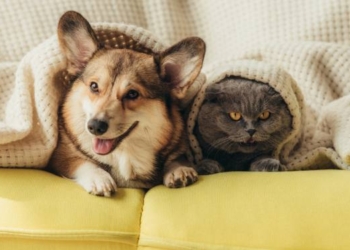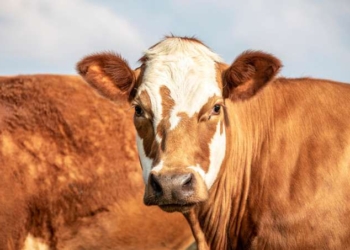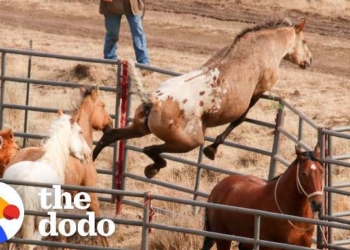
Horses are majestic creatures that make wonderful companions for many years. It’s even been proven that they can help with certain conditions – such as Alzheimer's due to their kind and gentle nature.
However, if you’ve never owned a horse before, it’s important to realize the time, effort and cost that’s associated with this decision.
So many first-time horse owners jump into the process without carrying out thorough preparation first. This leads to them resenting their horse and sometimes even giving it up.
But, it doesn’t have to be like this. To ensure that this doesn’t happen, you can sit down and weigh up all the key considerations associated with getting a horse.
To help guide you in the right direction, we’ve created a list of 10 key things you should keep in mind ahead of purchasing your own horse:
1) The Cost of Caring for It
Horses aren’t cheap animals to keep by any means. And it extends further than just the initial purchase price. Over the years, you’ll have to budget not only for their bedding, but food, trips to the vet, any clothing you’ll need to wear to ride them, etc.
Of course, there are plenty of stores that sell certain items (take Equi Supermarket for example) throughout the country. But that doesn’t mean that the costs won’t start to rapidly ramp up – leaving you with a hefty bill to pay throughout the time you own the horse.
Two other prominent costs you’ll have to budget for is the cost of training your horse and any riding lessons if you’re less experienced. Therefore, before you get a horse, make sure that you factor in these costs and whether they are attainable in the long term.
2) Do You Have The Space For Them?
Horses are big animals, so you’ll need a lot of space for them. This space will have to include their stable, shelter and room for them to roam around in.
Generally, it’s recommended that you have at least one acre of space for them to live in, to ensure that they get enough exercise and can lead a happy life. If you don’t have the space, then a horse might not be the best animal for you to keep on your property.
Of course, at times you can rent a stable nearby where you can keep your horse. But if you’re thinking about this option, you’ll need to be ready for the responsibility of going out there each day to care for it.
Plus, not having a horse on your property might make it more difficult to gain a connection with them as they aren’t as close by.
3) The Horse’s History
If you’re looking at horses online, it’s important that you fully discover the horse’s background. Never take what the seller is saying as fully legitimate – spend some time conducting your own research around it.
Even though some sellers might look trustworthy, they could just be putting on an act to try and sell the horse quickly.
Therefore, it’s a good idea to check veterinary records to ensure that they are fit and healthy. You don’t want to be duped out of money and to find that the horse isn’t happy in its life.
4) Go and Visit it
Following on from the above, once you’ve conducted research about the horse it’s important that you go and visit it yourself. This way, you’ll get a flavor of what the horse’s temperament is like and whether it would be a good fit for you.
Although it might be tempting to purchase the horse online without visiting it, it’s worth going to see it first as it might not be exactly like what’s advertised. Like anything online, a seller could put up different images or false information about them.
While visiting them, ask the seller if you can ride the horse and any other questions you might have about its background. Any legitimate and reliable seller should allow you to do this.
5) Consider Riding Lessons Ahead of Time
As mentioned above, a prominent cost you’ll have to consider is riding lessons. And while you can do these after you’ve purchased your horse, it’s a good idea to consider doing these ahead of time.
Why? Because you’ll feel more comfortable when it comes time to owning your own horse. Plus, you might find that after taking riding lessons a horse isn’t the right pet for you.
6) Do You Have the Time?
If you’re thinking about keeping the horse on your property, you’ll need to consider how much time it will take for you to care for them each day. Not only will you need to feed them twice a day, but you’ll need to clean out their stables, give them some exercise, etc.
Also, if you’re thinking about going on vacation over the next few months, you’ll need to factor in arranging somebody to care for your horse while you’re not there.
For this, there are boarding facilities that can take on this responsibility for you. But before you take the leap and go for the first one you find, you’ll want to visit the facility and ensure that they have the right equipment/accommodation to care for your horse to a high standard.
7) Should You Lease a Horse?
As a first-time horse owner, you’ve obviously had no real experience of owning your own horse. So before you purchase one, maybe consider leasing a horse instead for the next few months. Through this type of arrangement, you’ll pay a portion of the horse’s expenses.
In exchange for this, you’ll be able to spend time with the horse, grooming it and riding it. A good way of giving you an insight into what it would be like to own one, it will ease you into the transition without giving you all of the responsibilities upfront.
After this lease comes to an end, you can then sit down and think about whether purchasing a horse is the right decision for you in the long term.
8) Consider Volunteering
Alternatively, if you don’t want to lease a horse, you could volunteer at a nearby stable instead. Another way of giving you a flavor of what horse-ownership will be like, it will give you time to bond with the horses and appreciate the time and effort that goes into caring for them.
Plus, you won’t have to worry about paying for any of their expenses upfront – giving you some more time to gather the money for your own horse. A happy medium, it’s the perfect way to do a rewarding task while giving you invaluable experience.
9) The Type of Horse You Buy
When looking at horses, you’ll undeniably want one that's well-mannered and well-trained, especially because you’re new to owning one.
So make sure that you research into the types of horses that you can own and compare and contrast different horses that are for sale.
Some people might have personal preferences that are based on the color of horse or its sex. If you fall into this bracket, use it as a way of narrowing down your search.
Of course, there’s a chance that after visiting some horses you might find that you’re more flexible.
10) Who They Are Recommended For
Some advertisements will clearly indicate whether the horse is suitable for a beginner, intermediate or advanced rider. A key factor that you’ll also need to consider in your search, it will ensure that you purchase the best horse for your requirements.
This is also important if you’re buying the horse for one of your children – as some horses are typically more suited to younger children.
Stallions for example, tend to be less suitable for beginners or young children due to their size. Whereas ponies or small horses are better for children because of their stature.
A Word of Advice: Get a Veterinarian to Check the Horse First
Before buying the horse, you might also want to consider getting a veterinarian to check them over. This way, you’ll have the peace of mind that they are in good general health and are suitable for private ownership.
Even though you'll want to look at any vet records as part of the process, by asking the seller if you can take them to the vet it will ensure that you have seen first-hand that they are healthy.
If you have an instructor or friend that has experience with horses, they can also come with you to this to guarantee that the horse hasn’t got any underlying issues.
Final Thoughts
So, there you go! Those are the top 10 things you should consider before getting a horse. A big decision to make, it’s so important that you sit down and look at these considerations, along with thoroughly researching ahead of time.
You want to give your horse the best life possible and to enjoy owning them. So make sure that you don’t just purchase a horse without doing this first!













![Everything You Ever Wanted to Know About 9/11 Conspiracy Theory in Under 5 Minutes [VIDEO] | by James Corbett](https://consciouslifenews.com/wp-content/uploads/2018/09/911-a-conspiracy-theory-120x86.jpg)